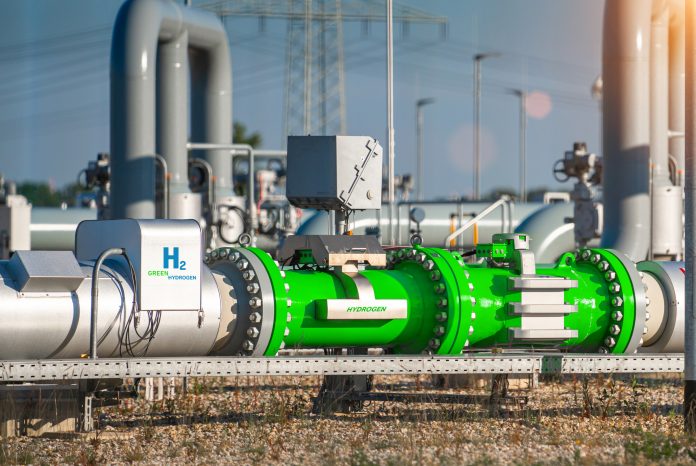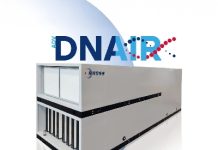Green hydrogen production facilities from the University of Sheffield are set to outproduce any other UK centre, thanks to new equipment to support the sustainable aviation sector
The new green hydrogen electrolyser technology is based at the University of Sheffield’s sustainable aviation fuels innovation centre (SAF – IC) and will enable researchers to work within the industry to produce, develop and test new hydrogen fuels.
The new PEM-Based electrolyser from IMI Remosa means the University can produce nearly 140Nm3 (normal cubic metre) per hour with a storage capacity of 1450Nm3, equating to the electricity required to power 200 homes.
Hydrogen electrolyser set to produce more than any other UK research centre
Made from non-petroleum feedstocks, Sustainable Aviation Fuels (SAFs) act as an alternative fuel that reduce emissions from air transportation. SAFs are seen as a vital step in reducing global carbon emissions.
Aviation’s reliance on fossil fuels is creating ongoing challenges to decarbonise, with new fuels subject to strict regulations before they can be approved.
Sheffield University is to work with partners within the aviation industry, where they will have to meet strict standards to develop new hydrogen and CO2-based fuels.
The aviation industry is responsible for 7% of total carbon emissions in the UK
Director of the University of Sheffield’s Energy Institute, Professor Mohamed Pourkashanian, said; “We are thrilled to have the capacity to produce the green hydrogen in our site so that our research and development into SAFs (especially via Power-To-SAF), industrial fuel switching and decarbonisation can continue.”
Helping break the aviation industry’s reliance on fossil fuels with green hydrogen production
“In order to drive forward a decarbonised future, we must understand more about the possibilities and capabilities of green hydrogen, particularly with regards to sustainable aviation fuels” explains Professor Pourkashanian.
“With this new electrolyser at our SAF-IC facility, we can work with industry and fellow academics to discover and demonstrate the best way to make a hydrogen economy and a greener future a reality.”
South Yorkshire is becoming the UK’s leading hub for sustainable aviation R&D largely due to the University of Sheffield’s research facility.
The University is also a part of consortium led by Virgin Atlantic, which is set to lead the world’s first 100% SAF transatlantic flight. Which is due to be scheduled to fly later this year.











